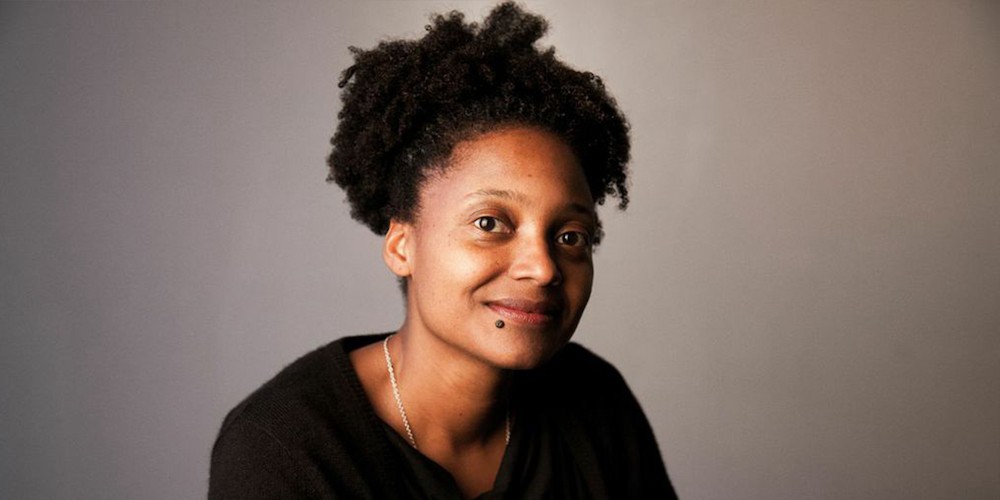Alumni Spotlight: Tracy K. Smith '97, New Poet Laureate
The Writing Spotlight series highlights the work of alumni, faculty and current MFA students, asking them to share thoughts on their craft and practice through a question-and-answer interview.
Tracy K. Smith '97 hasn't lost sight of what's important to her, even after being named U.S. Poet Laureate in June. The field's top honor, bestowed by the Library of Congress, means that Smith follows in the footsteps of long admired poets, among them Rita Dove, Louise Glück and Billy Collins. Smith is furiously at work writing new poetry, and she has a new project underway that crosses genres. Below, she discusses her approach to her work and her many influences at Columbia.
How did your time at Columbia influence your writing and your process? What is one thing you still vividly remember from your time here?
Columbia was enormously important to my development as a writer. I think of those years as a beautiful apprenticeship, where I was able to explore different types of material and access different pieces of my own voice. I took risks, I wrote bad poems, and I read so many books of poems. My relationships with teachers was deeply validating. In particular, I remember how much attention and access to their time and thought process that poets Lucie Brock-Broido, Linda Gregg and Mark Doty gave us. I remember moving as a pack through Manhattan with my classmates, going to readings, meeting in cafes to discuss our own work, and long afternoons in the Strand bookstore.
I also remember sitting in Mark Doty's office one afternoon with a dilemma. I'd been offered a flexible full-time job in a non-literary field, and I was worried that accepting it might pull me away from the identity as a poet that I was so eager to cultivate. He told me something very wise about how one makes time for what is important, and how one should never feel ashamed of the ability to support oneself. I took the job, kept it for a year, and then moved on to something else. Those were the years I began to suspect that the path I was embarking upon would be long and full of turns—a suspicion that was confirmed by the next decade of my life.
Being named U.S. Poet Laureate is the top honor in the field. What does the tradition mean to you?
I remain grateful for the visible role that poets like Rita Dove, Robert Pinsky and Robert Hass played as Poet Laureate. I drew my vocabulary for what poems did, and how they relate not simply to us as individuals but to us as a society largely from their comments and their beliefs about the art form. I hope that my voice and my project might speak to people in a similar way, regardless of whether they are hoping to become writers.
Is there any advice you can share with students or young poets pursuing the craft in our current times?
I urge my students to use their poems as a means to wrestle with the questions and events that compel and befuddle them. I urge them to see their poems not merely as these decorative or impressive objects, and not merely as pieces of an insular conversation for the already-initiated, but rather to allow them to be tools by which the living of life can be made realer, more meaningful and more bearable. I think that happens most fully when we allow space for the contemplation of the lives of other people in our writing.
You've mentioned that you want to use your new title as a means to travel to towns where literary festivals are not as common. What are some of your ideas or thoughts around bringing poetry to those who may not be exposed to it?
I think that poems cause us to hear, notice, feel and think certain things quite naturally, and that talking about those things together is a way of entering into a shared experience of the poem. I don't think poetry need be a luxury. On the contrary, it provides a vital language for some of our most urgent feelings. As an added bonus, poetry allows us to experience what it feels like to really listen to someone else's perspective. It fosters a kind of empathy and trust. I hope that reading and discussing poems with each other might be one way of fostering a sense of community and nationhood across divides.
What are you currently working on? Are you interested in working across genres?
I have a new book of poems coming out in April, which means I have spent the last season working furiously on poems. Now, I'm working on an opera libretto, and co-translating the work of contemporary Chinese poet Yi Lei. I used to be afraid of crossing genres. Now I believe it allows me to explore different kinds of concerns, and work simultaneously on different types of projects.
